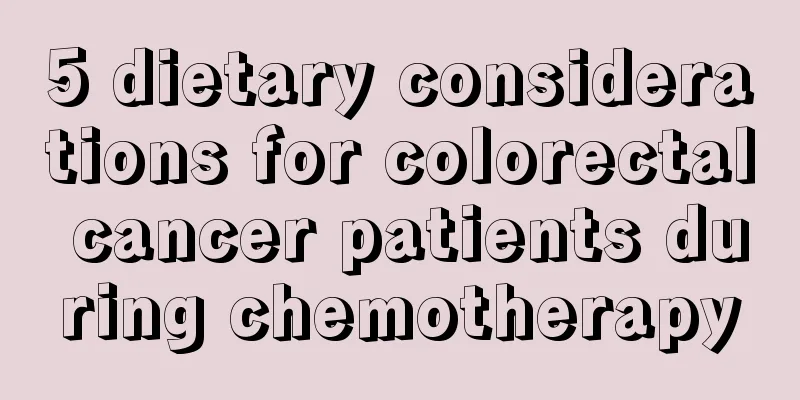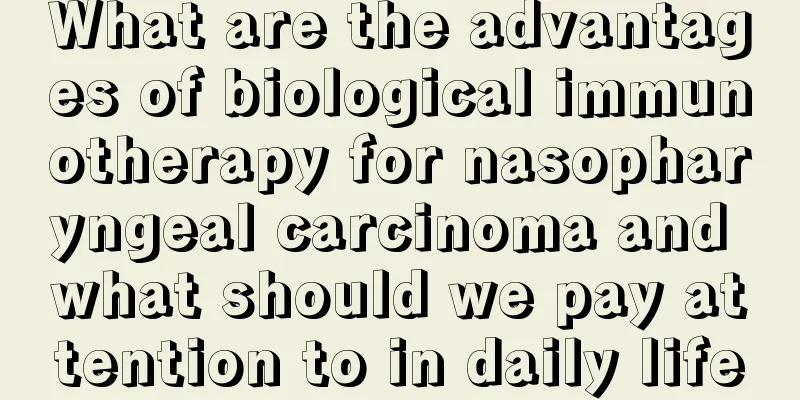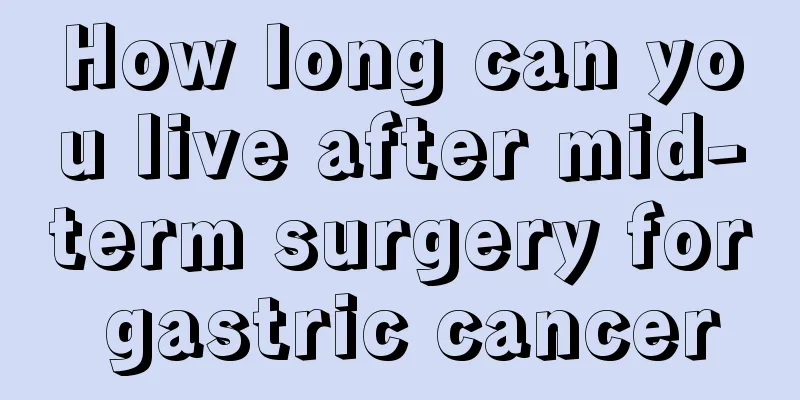5 dietary considerations for colorectal cancer patients during chemotherapy

|
Colon cancer patients who are undergoing chemotherapy often have a decreased appetite. So what are the key points that patients should pay attention to in their daily diet? 1. Eat small and frequent meals, ensure food diversity, and choose easily digestible food. Almost all chemotherapy drugs have an inhibitory effect on dietary intake. Patients have poor appetite, are afraid of greasy food, and eat less. At this time, patients should eat small and frequent meals to ensure food diversity and easy digestion. Liquid food, semi-liquid food, soft rice, etc. can be selected according to the patient's digestive ability. 2. Do not be partial or picky about food. High-fat and high-protein foods should be eaten with fruits and vegetables. Patients with colorectal cancer should not eat high-protein foods alone for a long time. They can often eat fresh vegetables rich in vitamins and cancer-preventing foods, such as tomatoes, celery, cabbage, mustard greens, radishes, soy products, citrus fruits and cereals. 3. During chemotherapy, patients should not eat foods with bones or thorns to avoid damaging the gastric mucosa and causing bleeding. In addition, they should eat less high-sugar foods to avoid food fermentation and acid production in the body, which may cause gastrointestinal discomfort. 4. Patients should not rush to eat a lot during vomiting. First, they should replenish water. After vomiting, patients can first use warm salt water with a little sugar, swallowing small amounts frequently. Lotus root has a hemostatic effect. If there is blood in the vomit, patients should first drink lotus root powder or fresh lotus root juice. After that, they can first drink millet soup or thin lotus root powder, and then slowly drink rice porridge or thin noodles with meat floss, etc., which are easy to digest and less irritating. Patients should not eat large amounts of meat, eggs, milk and other foods that are difficult to digest. 5. Dietary conditioning for digestive tract toxicity: Chemotherapy for colorectal cancer can cause oral mucositis, which manifests as mucosal congestion, edema, ulcers, pain, etc. At this time, patients should keep their mouths clean, brush their teeth after eating, supplement with high-nutrition liquid or semi-liquid diets, and avoid overheated, overly acidic and irritating foods when eating. When patients have acute oral inflammation, they can hold ice in their mouths to reduce inflammatory exudation; when ulcers occur, patients can add 0.1g of crushed vitamin C to 20ml of honey and hold it in their mouths 2-4 times a day. |
<<: 6 points to note in postoperative care for brain cancer patients
>>: The difference between Hodgkin's lymphoma and non-Hodgkin's lymphoma
Recommend
Can mosquitoes transmit AIDS
As sexual life becomes more and more open, variou...
What are the reasons for sweating after drinking water in summer
In the summer, many people will sweat right after...
How to avoid carelessness in math exams?
We have all done math test questions. Math tests ...
Introduction to the 5 main treatment methods for liver cancer
There are many ways to treat liver cancer. The ch...
Is endometrial cancer contagious to humans?
There are many friends around us who suffer from ...
Nursing knowledge for pancreatic cancer patients
Pancreatic cancer has a hidden onset and is diffi...
The shoes rubbed my heels and made them bleed
In order to be comfortable, shoes must fit your f...
What to do if myopia reaches 700 degrees
Generally speaking, things are blurry when you ha...
Fatty liver increases the risk of colorectal cancer
Fatty liver is a disease caused by excessive fat ...
Is riding a bicycle bad for your health?
What are the disadvantages of riding a bicycle? N...
What delicacies can be made with an electric baking pan
Nowadays, electric baking pans have become an ind...
Why does my chest hurt at the age of 17
People care a lot about their bodies, especially ...
What causes gout? Let’s take a look
Gout is a common and frequent disease that causes...
Why does the skin on the face turn yellow
A yellow complexion is a problem that many people...
Can you eat the mangoes on the roadside?
In the southern region, some mango trees are plan...









